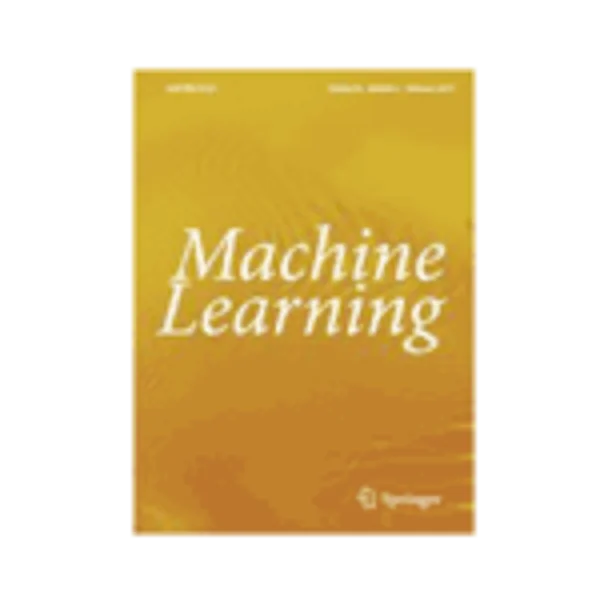-
data and task parallelism in ilp using mapreduce
جزئیات بیشتر مقاله- تاریخ ارائه: 1392/07/24
- تاریخ انتشار در تی پی بین: 1392/07/24
- تعداد بازدید: 1051
- تعداد پرسش و پاسخ ها: 0
- شماره تماس دبیرخانه رویداد: -
nearly two decades of research in the area of inductive logic programming (ilp) have seen steady progress in clarifying its theoretical foundations and regular demonstrations of its applicability to complex problems in very diverse domains. these results are necessary, but not sufficient, for ilp to be adopted as a tool for data analysis in an era of very large machine-generated scientific and industrial datasets, accompanied by programs that provide ready access to complex relational information in machine-readable forms (ontologies, parsers, and so on). besides the usual issues about the ease of use, ilp is now confronted with questions of implementation. we are concerned here with two of these, namely: can an ilp system construct models efficiently when (a) dataset sizes are too large to fit in the memory of a single machine; and (b) search space sizes becomes prohibitively large to explore using a single machine. in this paper, we examine the applicability to ilp of a popular distributed computing approach that provides a uniform way for performing data and task parallel computations in ilp. the mapreduce programming model allows, in principle, very large numbers of processors to be used without any special understanding of the underlying hardware or software involved. specifically, we show how the mapreduce approach can be used to perform the coverage-test that is at the heart of many ilp systems, and to perform multiple searches required by a greedy set-covering algorithm used by some popular ilp systems. our principal findings with synthetic and real-world datasets for both data and task parallelism are these: (a) ignoring overheads, the time to perform the computations concurrently increases with the size of the dataset for data parallelism and with the size of the search space for task parallelism. for data parallelism this increase is roughly in proportion to increases in dataset size; (b) if a mapreduce implementation is used as part of an ilp system, then benefits for data parallelism can only be expected above some minimal dataset size, and for task parallelism can only be expected above some minimal search-space size; and (c) the mapreduce approach appears better suited to exploit data-parallelism in ilp.
مقالات جدیدترین رویدادها
-
استفاده از تحلیل اهمیت-عملکرد در ارائه الگوی مدیریت خلاقیت سازمانی و ارائه راهکار جهت بهبود
-
بررسی تاثیر ارزش وجوه نقد مازاد بر ساختار سرمایه شرکت های پذیرفته شده در بورس اوراق بهادار تهران
-
بررسی تأثیر سطح افشای ریسک بر قرارداد بدهی شرکت های پذیرفته شده در بورس اوراق بهادار تهران
-
بررسی تأثیر رتبه بندی اعتباری مبتنی بر مدل امتیاز بازار نوظهور بر نقد شوندگی سهام با تأکید بر خصوصی سازی شرکت ها
-
تأثیر آمیخته بازاریابی پوشاک ایرانی بر تصویر ذهنی مشتری پوشاک ایرانی (هاکوپیان)
-
بررسی مهمترین پارامترهای موثر در رفتار دیوار برشی فولادی
-
تصفیه پساب حاوی سولفید با استفاده از تکنولوژی جدید پیل سوختی میکروبی و تولید انرژی پاک بصورت همزمان
-
بررسی خواص ضد درد، التیام معده و قلیایی ترکیب عصاره ریشه شیرین به همراه جوش شیرین روند درمان بیماری رفلاکس معده
-
a continuum damage model for the high-cycle fatigue life prediction of styrene-butadiene rubber under multiaxial loading
-
idv observations & study of the quasar 0917+624
مقالات جدیدترین ژورنال ها
-
مدیریت و بررسی افسردگی دانش آموزان دختر مقطع متوسطه دوم در دروان کرونا در شهرستان دزفول
-
مدیریت و بررسی خرد سیاسی در اندیشه ی فردوسی در ادب ایران
-
واکاوی و مدیریت توصیفی قلمدان(جاکلیدی)ضریح در موزه آستان قدس رضوی
-
بررسی تاثیر خلاقیت، دانش و انگیزه کارکنان بر پیشنهادات نوآورانه کارکنان ( مورد مطالعه: هتل های 3 و 4 ستاره استان کرمان)
-
بررسی تاثیر کیفیت سیستم های اطلاعاتی بر تصمیم گیری موفق در شرکتهای تولیدی استان اصفهان (مورد مطالعه: مدیران شرکتهای تولیدی استان اصفهان)
-
تاثیر سرمایه فکری بر رابطه بین حاکمیت شرکتی و عملکرد شرکت های پذیرفته شده در بورس اوراق بهادار تهران
-
لزوم توسعه سنجه های مفاهیم اخلاقی در حسابداری و حسابرسی
-
رابطه ویژگی های شخصیتی با سرمایه روان شناختی معلمان و کارمندان دانشگاه
-
بررسی رابطه عملکرد در آزمون استروپ با تنظیم هیجانی و پیشرفت تحصیلی دانش آموزان شهر مشهد
-
full-depth reclamation method for rehabilitation of streets pavement in city of sirjan: mix design and bearing capacity




سوال خود را در مورد این مقاله مطرح نمایید :